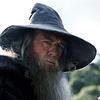Take a photo of a barcode or cover
really thought provoking, with some beautiful poetry woven through. took me a while to realise i liked it, but well worth the read
challenging
emotional
reflective
slow-paced
Plot or Character Driven:
Character
Strong character development:
Yes
Loveable characters:
Complicated
Flaws of characters a main focus:
Yes
It was an old book tha t I wanted to read for awhile. It was a good take on the life of a soldier.
reflective
sad
slow-paced
Each character Barker writes serves to deepen the reader’s understanding of the psychological effects of both war and masculinity, and how they were treated over a century ago. Barker’s writing is beautiful and melancholy, and the discussion of human responses to masculinity and the philosophy of war were fascinating and tragic. A very beautiful novel, made all the more special by its roots in the real lives of Sassoon, Rivers, and Owen.
She would never know because he would never tell her. Men said they didn’t tell their women about France because they didn’t want to worry them. But it was more than that. He needed her ignorance to hide in. Yet at the same time, he wanted to know and be known as deeply as possible. And the two desires were irreconcilable.
She would never know because he would never tell her. Men said they didn’t tell their women about France because they didn’t want to worry them. But it was more than that. He needed her ignorance to hide in. Yet at the same time, he wanted to know and be known as deeply as possible. And the two desires were irreconcilable.
challenging
dark
emotional
informative
reflective
slow-paced
Plot or Character Driven:
Character
Strong character development:
Complicated
Loveable characters:
Yes
Diverse cast of characters:
Yes
Flaws of characters a main focus:
Yes
By blending real figures with fiction, Pat Barker presents a view, through her novel Regeneration, into the world of mental illness of soldiers during World War I. While the back of the novel informs the reader that the book will be about Dr. W. H. R. Rivers attempting to help Siegfried Sassoon “regain” his sanity so that he can return to the armed forces; in actuality all of the main characters go through a process of regeneration. Just as Dr. Rivers had taken part in an experiment with regenerating feelings in destroyed nerves, each character has to go through a journey of reawaking emotions to come to a complete healing.
Dr. Rivers is supposed to be the healer and the one observing and repairing the broken souls; but as we see throughout the novel that Dr. Rivers himself is in need of help. He is worn down, physically ill, and doubting his own sanity and methods as his dreams become more and more rought with secret fears. Not until Dr. Rivers returns home and confronts the demons of his past, coming face to face with how he treated his father and the condemnation of his father’s medical practices; is he able to move forward and be more certain in his life.
Sassoon is the newest addition to the institution, having been sent there for his anti-war sentiments. While at first he is resistant to the doctor and the healing process, through the doctor’s careful prodding he comes to the realization that he can’t distance himself from those he loves in the trenches, and has to return to help them. His companionship with Wilfred Owen is another part of his healing process, as he encourages Owen to use his experiences of the war in his poetry, telling Owen that only by releasing his feelings will he be better artistically and mentally; subsequently realizing that he (Sassoon) cannot hide away what he took part in. This expression and companionship helps heal not only Owen, but Sassoon as well.
Billy Prior is the patient that is the most resistant to any type of treatment at Craiglockhart War Hospital. Not only does he try to keep himself closed off from the doctor and the other invalids but he also becomes combatable in an attempt to anger or annoy those tying to delve deeper into his psyche. Anytime that one is making headway in having him start to express emotions, he immediately shuts down, determined to reject all lifesavers thrown at him. As Prior starts to form what he thought was going to be a temporary relationship with Sarah Lumb, she begins to awaken that lost side of him and causes him to look toward his past. This revitalizing scares him, and at first he does everything in his power to foil that relationship. In the end through the combined efforts of Sarah and Dr. Rivers, Prior realizes that expressing his emotions doesn’t make him weak, but in fact a stronger man.
In contrast, two minor characters, David Burns and Dr. Anderson never travel that road and therefore never achieve healing. Burns is scared and ashamed of his emotions; choosing to live in silence and suffering than to express what he is feeling. He ends up leaving the institution, but is continuously tormented by what happened in the war. Dr. Anderson shares the same feelings of shame for what he considers as weakness, and suffers from having too much pride to admit that he needs help. Instead of accepting Dr. River’s assistance, Dr. Anderson decides to go it alone, and with the combination of responsibilities of family and his own fears strangling him; he forever also lives in anguish.
Barker presents an interesting view on post-traumatic stress disorder during World War I, but even more fascinating is her delve into the issue of whether expressing emotions and being vulnerable are a sign of weakness or strength. It seems that Barker feels expressing one’s emotions are extremely important in men, and that being detached and holding in one’s feelings is an act of cowardice. Contrary to popular belief, she presents this regeneration of emotion as being an act of bravery and strength, and that for one to be truly courageous thy must not be afraid to allow themselves to be vulnerable and open. That these qualities do not have to be seen as negative or “feminine”, but can also be considered masculine.
Dr. Rivers is supposed to be the healer and the one observing and repairing the broken souls; but as we see throughout the novel that Dr. Rivers himself is in need of help. He is worn down, physically ill, and doubting his own sanity and methods as his dreams become more and more rought with secret fears. Not until Dr. Rivers returns home and confronts the demons of his past, coming face to face with how he treated his father and the condemnation of his father’s medical practices; is he able to move forward and be more certain in his life.
Sassoon is the newest addition to the institution, having been sent there for his anti-war sentiments. While at first he is resistant to the doctor and the healing process, through the doctor’s careful prodding he comes to the realization that he can’t distance himself from those he loves in the trenches, and has to return to help them. His companionship with Wilfred Owen is another part of his healing process, as he encourages Owen to use his experiences of the war in his poetry, telling Owen that only by releasing his feelings will he be better artistically and mentally; subsequently realizing that he (Sassoon) cannot hide away what he took part in. This expression and companionship helps heal not only Owen, but Sassoon as well.
Billy Prior is the patient that is the most resistant to any type of treatment at Craiglockhart War Hospital. Not only does he try to keep himself closed off from the doctor and the other invalids but he also becomes combatable in an attempt to anger or annoy those tying to delve deeper into his psyche. Anytime that one is making headway in having him start to express emotions, he immediately shuts down, determined to reject all lifesavers thrown at him. As Prior starts to form what he thought was going to be a temporary relationship with Sarah Lumb, she begins to awaken that lost side of him and causes him to look toward his past. This revitalizing scares him, and at first he does everything in his power to foil that relationship. In the end through the combined efforts of Sarah and Dr. Rivers, Prior realizes that expressing his emotions doesn’t make him weak, but in fact a stronger man.
In contrast, two minor characters, David Burns and Dr. Anderson never travel that road and therefore never achieve healing. Burns is scared and ashamed of his emotions; choosing to live in silence and suffering than to express what he is feeling. He ends up leaving the institution, but is continuously tormented by what happened in the war. Dr. Anderson shares the same feelings of shame for what he considers as weakness, and suffers from having too much pride to admit that he needs help. Instead of accepting Dr. River’s assistance, Dr. Anderson decides to go it alone, and with the combination of responsibilities of family and his own fears strangling him; he forever also lives in anguish.
Barker presents an interesting view on post-traumatic stress disorder during World War I, but even more fascinating is her delve into the issue of whether expressing emotions and being vulnerable are a sign of weakness or strength. It seems that Barker feels expressing one’s emotions are extremely important in men, and that being detached and holding in one’s feelings is an act of cowardice. Contrary to popular belief, she presents this regeneration of emotion as being an act of bravery and strength, and that for one to be truly courageous thy must not be afraid to allow themselves to be vulnerable and open. That these qualities do not have to be seen as negative or “feminine”, but can also be considered masculine.
Ostensibly about Siegfried Sassoon's time in a hospital for the shell-shocked, this novel touches on much more. Psychiatric treatments in the 1910s, social class, the many and varied horrors of war, pacifism, sexuality & gender, war poetry, the ethics of war & the ethics of treating people with the intent of sending them back to war. Ultimately immersive and very affecting.
What started as compulsory reading for A Level English quickly became a pleasure rather than a chore. I'm really not a fan of war stories; the blood, the death, the stupid decisions made by those who get to sit in comfortable chairs while others go out and die. But this was not about that aspect of war, this is about the aftermath, the psychological aftermath to be more precise. What happens to the men who come back after they've seen what they've seen and done what they've done. I'm not saying this is the only, or even the first book, to have explored these themes, but it did make them approachable and easily accessible. Barker doesn't bludgeon her readers either, something else I can't stand in a book. The arguments and points are there but I never felt they were over-laboured. After finishing this I was keen to read the rest of the trilogy, to follow Billy Prior, Dr. Rivers and Siegfried Sassoon as they continue to fight and try to survive with something resembling their pre-war personality intact.
A marvel of a book. Beautifully written, poetic, and insightful on many of the most important questions of our time. Fascinating to me to see a book that is this engaging and magnetic although there is not exactly a plot that makes you turn the page. Rather you turn the page to see how the characters will deal with their circumstances (well, I guess that is a plot, after all).


